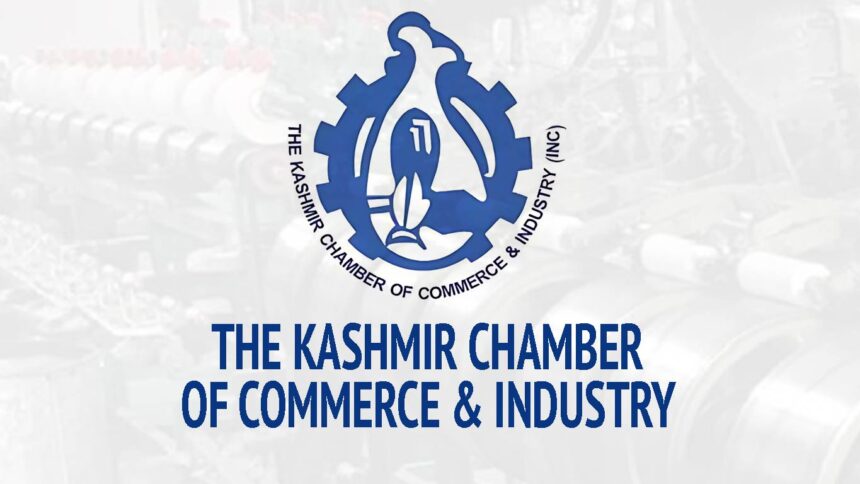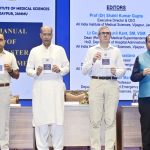Srinagar, Jul 16: The Kashmir Chamber of Commerce & Industry (KCCI) participated in a two-day conference on “Transforming Skilling Ecosystem in Jammu & Kashmir”, organised by the Department of Skill Development, Government of Jammu & Kashmir. Secretary General Faiz Ahmad Bakshi represented KCCI during this important deliberation on the region’s skill development future.
The conference was attended by senior government officials, including Chief Secretary Atal Dulloo, Financial Commissioner (Additional Chief Secretary) Tourism, Principal Secretary Finance Santosh Vaidya, Secretary Skill Development Department Rajeev Ranjan, and Director Skill Development Shahzad Alam, the KCCI said in a statement issued here.
The event aimed to address development challenges and critical issues facing skill development in Jammu and Kashmir, notably the misalignment between training programmes and industry needs, low employment placement rates, limited career progression pathways, and fragmented governance across departments.
Discussions featured various successful models, as well as stressed or emerging approaches, emphasising how the Government of Jammu & Kashmir plans to align with the Government of India’s Rs 2 lakh crore budgetary package targeting 4.1 crore youth over the next five years.
Chief Secretary delivered the keynote address, while Secretary Skill Development presented a detailed overview titled “Current State of Skilling in Jammu and Kashmir” and outlined the “Skilling for All” roadmap for the region.
As a panellist, KCCI Secretary raised several critical concerns. He highlighted the alarming youth unemployment rate of 32.8% among individuals aged 15-29 in Jammu & Kashmir, citing the Ministry of Statistics and Programme Implementation (MOSPI) report—a figure demanding urgent attention, especially as the country aims for a $5 trillion economy.
Bakshi said the current skill training at Industrial Training Institutes (ITIs) is outdated and inadequate to meet future global market demands. “There is an urgent need to update curricula to bridge the widening gap between training and industry requirements and to reduce the high unemployment figures despite numerous training initiatives,” he said.
The Chamber called for shifting toward market-oriented skill development aligned with national economic goals and global industry standards. This includes designing training programs that cater to evolving sectors such as technology, tourism, handicrafts, and emerging industries.
The KCCI also expressed concerns about the quality of training, warning that increasing the number of training centres without improving content quality will not resolve unemployment issues effectively. It called for greater private sector involvement in designing and implementing skill development initiatives to ensure industry relevance and better employment outcomes.
The Chamber also called for establishing clear career progression pathways for skilled workers, ensuring that training translates into sustainable employment rather than temporary placements.
Bakshi highlighted the potential for employment generation through developing district clusters integrated with skill centres, especially in traditional sectors like handicrafts and cottage industries, which require modernisation to meet current market demands.
He underscored the necessity of strengthening Tourism Development Authorities to harness the growing tourism sector, which can create significant employment opportunities if supported by targeted skill development. Promoting innovation in Jamawar designing and value-added products was also identified as a promising avenue.
Bakshi called for better coordination among government departments to formulate and implement robust policies swiftly, ensuring that these initiatives effectively stimulate job creation and economic growth.
The conference saw active participation from distinguished delegates, including Mr. Govind Jaiswal, Joint Secretary, Ministry of Education; representatives from NABARD, SIDBI, TISS; industry leaders; hospitality sector representatives; Vice Chancellors, including VC Kashmir University; and representatives from organisations such as CII (National Body), Maruti Suzuki, Lalit Group, Wheebox India, JK Bank, Tata Group, FICCI, JK Cements, Tech Mahindra, NSDC, NITI Aayog, and FICK.








